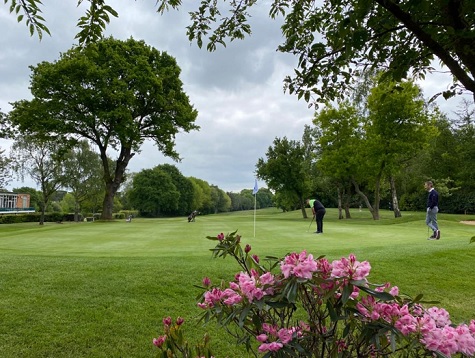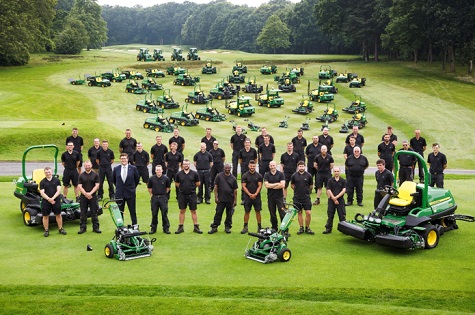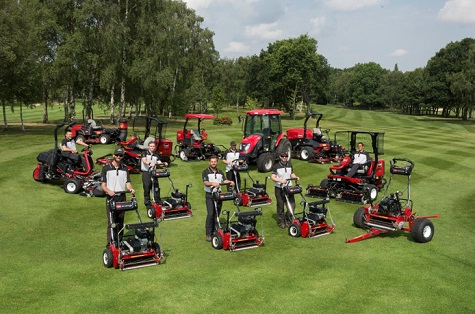As an ex greenkeeper and in my role of editor of a magazine that promotes the work of professional groundsmen, greenkeepers, gardeners and estate managers, it is staggering to me that in the eyes of others we are mostly viewed as purely grass cutters - and often treated as second class citizens. Worse still, we continue to be paid poorly compared to other industry’s professionals.
I have witnessed this attitude for the best part of my fifty years working in this industry, and yet we are still tarred with the same brush and generally receive little recognition for the work we do.
A recent conversation with a course manager enlightened me to the many current problems that are still having a major effect on the wellbeing and mental health of those who dedicate their lives to maintaining golf courses.
I read with interest that a recent BIGGA survey also showed the mental health struggles facing greenkeepers in a relatively lonely job where pressures of course conditions are high along with the anti-social hours and low entry level pay. The survey showed that 7% of greenkeepers constantly worry about their own mental health, while another 20% frequently worry and 41% admit to sometimes worrying about their mental state. 80% said they had worried about the mental health of someone they work with.

BIGGA Chief Executive Officer Jim Croxton said, “With the ongoing cost of living crisis at the forefront of our minds and the Covid-19 pandemic having caused many people to consider their priorities, the golf industry faces a very real challenge to engage sufficient staff at club level, to effectively deliver the sport to the nation’s five million regular golfers. Participation in the sport is booming at just the time that recruiting and retaining greenkeeping staff is at its most challenging.”
Having spoken to many industry professionals across all land-based sectors there is, without doubt, difficulty in recruiting staff. Whether it be an apprentice or a qualified person, attracting them to come and work is nigh on impossible. The biggest factors being low pay plus having to work overtime and weekends.
The very nature of our work, especially looking after sports facilities, entails that preparation and post-match activities often require people to work weekends and evenings. Something the younger generation are not interested in or prepared to do.
The other worrying fact is we are also seeing a lot of experienced turf professionals leaving the industry due to the exceptional work loads being put on them - and more importantly, not being treated with the respect they deserve.

The role and duties of any greenkeeping team is immense. The work they achieve week in and week out, is staggering to say the least. It doesn’t matter what the weather throws at them, they are still expected to deliver a high-quality playing surface for their members.
The costs involved
For me, this can only continue to be achieved if the club understands the complexities of maintaining a typical 18-hole golf course and comprehends the true costs required to fund their expectations. More importantly, they must invest and work in harmony with the course manager and their team.
To build a new golf course, taking into account the buying of the land, will set you back in the region of £10,000,000, if not more, at today’s prices. If you were to then add the ecological value of the course over time, it is priceless in my opinion.
By the very nature of an outside natural environment, golf courses can contribute to wildlife conservation, species protection and have the potential to play a role in mitigating the effects of climate change.

Sustainable agronomy practices contribute to good quality playing surfaces that can reduce the consumption of natural resources such as water; reduce the usage of fertiliser and pesticides and increase the biodiversity value.
It would seem from reading around the subject (here and here for example), the average cost to maintain an 18-hole golf course is in the region of £1,000.000.
And that’s a conservative estimate, not taking into account any significant capitol works that may need doing such as drainage work, irrigation systems, bunker refurbishments and the buying of new fleet of machinery.
So, all in all, running and managing an 18 hole golf complex comes at a cost.
A good question to ask would be, what should the annual membership fees be to cover the maintenance costs of the club? Well, you would need at least 500 paying members paying £2000 a year to cover this level of annual investment. That equates to around £40 per week per member.
Considering everything, I believe this is a reasonable cost for what you get as a member. Obviously this cost could come down if you had a larger membership. 1000 members would halve these costs.
The most important thing for me, is the investment in employing an experienced head greenkeeper and giving them the right resources, equipment, and authority to manage and build a team that can deliver the expectations of the membership and golf club.
Unfortunately, in many instances, this is not the case - especially when clubs are run on a committee led management structures. Often these will dictate what the HG / course manager can and cannot do - quite often only looking at short term gains.

It can take years to get the course into a condition that meets the expectations of its membership. For me, it is time that the sport’s governing bodies do more to ensure clubs begin to support and respect the work of the greenkeeping teams.
Far too many golf clubs expect a team of four or five greenkeepers to maintain a golf course, when you probably require eight to deliver their expectations.
Lack of respect
It is time we listened to and respected greenkeepers and turf professionals. A recent article in Golf Magic highlighted the concerns of many current working professionals.
One greenkeeper told the publication: "Sadly, there’s a lack of respect for the role we’re in, with many not even recognising it as a profession. I gave a lecture recently, speaking to golf club managers, and we went around the room and asked what a greenkeeper did.
"So many people just answered ‘they cut the grass’ and were amazed when I reeled off the list of actual duties that greenkeepers do. We’re politicians, agronomists, scientists, magicians, spray technicians, tree surgeons and the list goes on and on. We set budgets, deliver presentations, fight turf diseases and unfortunately that’s not recognised in the industry.
"As a golf club, your biggest asset is the course and the greenkeepers are responsible for looking after it. Yet they’re not given the same status as the club manager or the golf professional. Greenkeepers will speak to their members and there’ll be someone who may be a dentist, a doctor or an electrician, telling the greenkeeper how he should be maintaining the course, which is mind-blowing.
"I'd like to say that the solution is making golfers more aware of what greenkeepers do to maintain the course, but the golfer has to want to learn and that’s not always the case."
We have also seen a recent campaign by BIGGA known as Thank A Greenkeeper Day. I’m not sure how this will change the attitude though? Yes, I admire the concept behind it, but in reality we should be focussing on campaigns to encourage golf clubs to change the way they employ and look after their greenkeeping staff.
I find it a sad indictment that we still see, at some clubs, poor working facilities. Sheds and mess rooms being inadequate or fit for purpose. Would the club’s officials work in these conditions?
For me, it is not really all about the wage. We should be concentrating on the working conditions, working environment and culture of the club to embrace the greenkeeping staff. They should be treated as equals to all other members of staff and be welcomed and respected by club members.
We need to create a positive working environment with everyone buying into the goal of delivering a well-maintained golf facility.